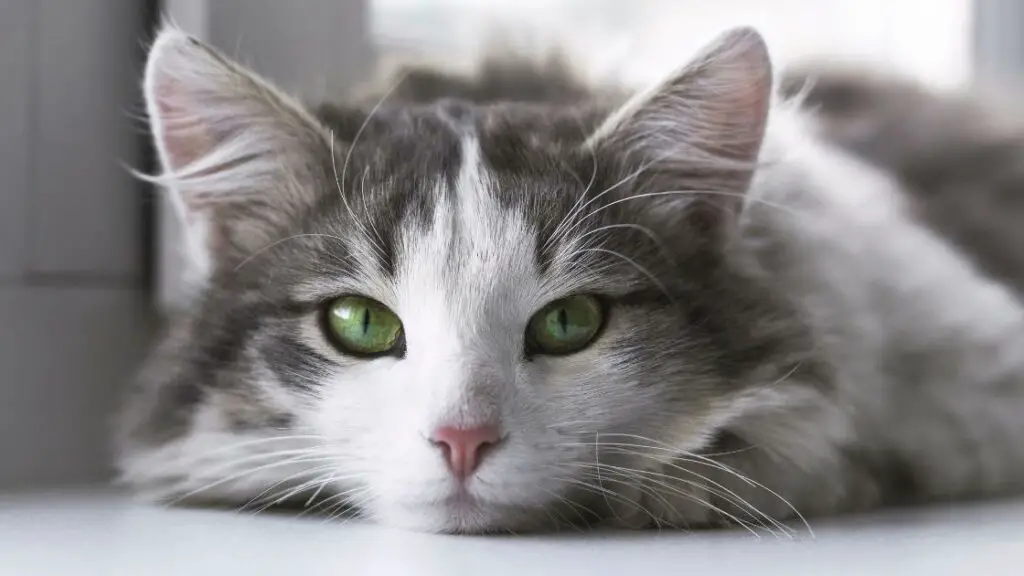If you are a cat lover but living in an apartment or rental that prohibits them, you may be wondering if there are ways that you can hide the presence of your cat from your landlord.
Now before you go ahead and do this, I would recommend that you talk with your landlord and see if there is a way to make this work for them. Many landlords can be persuaded if you have been a model tenant, pay rent on time, and generally take great care of the place.
You can sweeten the pot by agreeing to pay a slightly higher rent or put down an additional security deposit to cover any damage that your cat may cause.
If this doesn’t work, and you still want to proceed, here are 9 great tips for hiding your cat from your landlord.
The information contained in this post is for informational purposes only. It is not legal advice. You should seek the advice of a qualified legal professional before making any decisions relating to the topics covered by this article.
We may earn commissions from products and services that are purchased or recommended through our website as part of our affiliate partnerships. As an Amazon affiliate, we may earn from qualifying purchases.
1. Keep Your Cat Indoors:

One of easiest ways to get caught is to have a cat that wanders around the property. Not only can neighbors see the cat, but the landlord may also observe the cat on or near the property when they visit (or even drive past it).
So keep you feline friend indoors and out of sight.
Now you want to make sure your cat has everything they need to spend their days inside your home, including plenty of toys and stimulation. The last thing you want is for your cat to engage in destructive behavior because they are bored.
Damage to the property is a surefire way to attract landlord attention to the issue, so keep an eye on your cat to see how they are doing and prevent them from damaging the rental property.
2. Manage the Litter Box:
Perhaps the biggest giveaway that a cat is living in your home is the unmistakable smell of a cat’s litter box.
All it takes is one whiff and your landlord will know you are hiding a cat from them.
So you need to have a clean and odor-free home. One of the best ways to do this is to invest in odorless, dust free litter.
Plus, you want to make sure you dispose of the litter religiously. Smells linger the longer they are in your unit, so prompt removal of litter is key.
Of course, this is common sense, but also make sure you air out your home regularly. Nothing freshens up the air quality of a place than a good airing out.
Ok, smell is one thing, but you also don’t want the actual presence of a litter box to give you away. One clever little option is to buy a litter box that looks like a piece of furniture. This can help disguise the presence of a cat if you have an unexpected visit from your landlord.
Something like this can work well.
3. Prevent Noise:
A loud wailing cat can also raise suspicion among neighbors and even your landlord (if they live nearby).
The good news is that cats are generally quiet animals (unlike dogs who can bark a lot). Again, the key is make sure you cat is occupied in a good way and not bored.
If they are stimulated and engaged, they will be less likely to be keening and making a ruckus when your landlord pops in for a surprise visit.
4. Fur Control:

It’s just a reality. Cats shed their fur and that far can get everywhere.
If your landlord or maintenance is entering your rental, having a ton of cat fur sticking to furniture, flooring, and the like.
So how do you prevent this? First, make sure you are grooming your cat regularly – this can reduce the amount of fur that sheds. Second, invest in a vacuum cleaner that excels at picking up cat fur. This is relatively affordable and has gotten good marks on Amazon.
5. Hide Evidence of Pet Supplies:
Landlords have a keen eye when spotting issues or violations in their rentals, so you need to make sure that when they visit, all evidence of your cat is stowed away and hidden from plain view.
That includes the litter box, food bowls, beds, carriers, and toys and posts, etc. If you have a dresser that can hold all of this stuff quickly, that might be the best solution.
6. Train Your Cat:
Some people actually train their cat to hide when strangers enter the dwelling.
That can be a very handy trick in case your landlord or building management enter the unit.
7. Enlist the Help of Neighbors
When you know your landlord is coming in to visit, one of the key things you need to arrange for is to have your cat somewhere else.
If you have a cooperative neighbor, that would be ideal. But if you can’t enlist their aid, see if a friend or relative may be willing to take care of the cat during the visit (or if worse comes to worst, you can keep you pet at a pet hotel for the day).
8. Take Advantage of Your Cat’s Sleep Schedule:
If you have a cat, you know that they love to sleep and will do so for a large portion of the day.
You can leverage this.
Try to schedule maintenance during the times that you know your cat will be asleep and tucked away out of sight. That will make them less likely to come out and make themselves known to visitors.
9. Use Pet-Safe Air Fresheners:
If you are still worried about cat odors you can invest in pet-safe air fresheners or essential oils. You can also buy air purifiers with carbon filters that can do a great jobs of eliminating odors in general.
Conclusion
So there you have it – 9 great tips to hide your cat from your landlord. Hope this has been helpful and happy renting!


